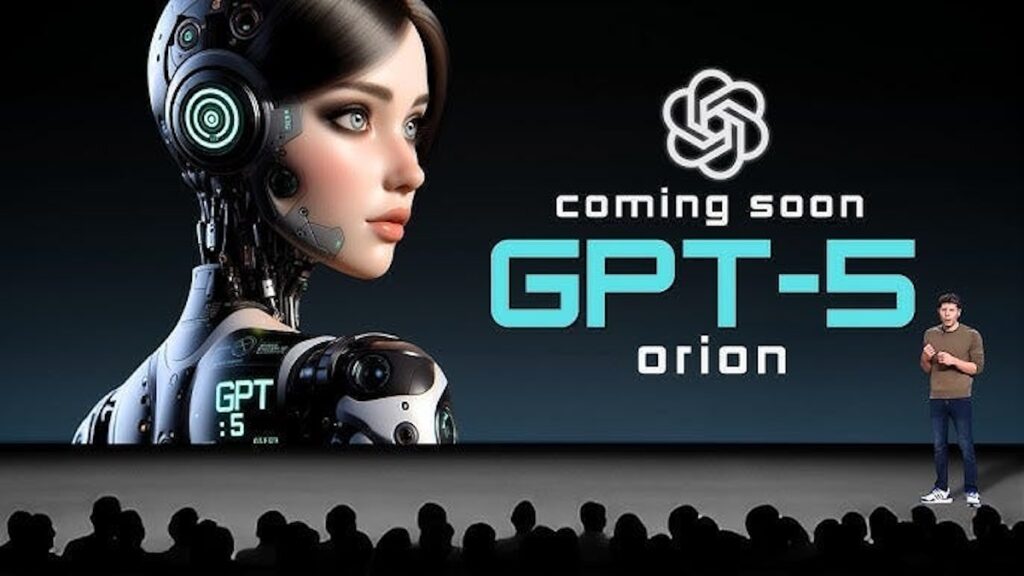The buzz surrounding OpenAI’s next-gen model, ChatGPT Orion, has the tech community speculating on how this innovation could redefine the AI landscape. Expected to succeed GPT-4, Orion promises enhanced capabilities and transformative potential across industries. Here’s a closer look at what to expect from this much-anticipated release.
What is ChatGPT Orion?
Orion is rumored to be OpenAI’s most advanced language model yet, designed as the direct successor to GPT-4. Internally developed under the codename “Strawberry,” it has reportedly leveraged synthetic data during its training phase. This innovative approach—using outputs from previous models like OpenAI’s o1—aims to create a robust, versatile, and bias-resistant AI system.
By refining training techniques and employing cutting-edge methodologies, OpenAI is setting the stage for a leap in AI performance and adaptability. If early rumors hold true, Orion could redefine our expectations of what AI can achieve.
Expected Features of Orion
Enhanced Reasoning Capabilities
One of Orion’s most exciting possibilities lies in its ability to tackle more complex reasoning and problem-solving tasks. This could make it invaluable in fields like:
- Advanced Coding: Automating intricate software development processes.
- Legal Reasoning: Assisting with legal research and case preparation.
- Medical Diagnostics: Supporting professionals with in-depth data analysis.
By handling nuanced, high-stakes scenarios, Orion could evolve from a support tool to a trusted collaborator across professional domains.
Multimodal Processing
Orion is expected to handle multimodal inputs, meaning it could process not just text, but also images, and potentially video. Imagine describing a complex graphic or uploading an image for analysis—Orion could interpret and respond, significantly enhancing user interactions and accessibility.
This capability opens doors to revolutionizing creative workflows, education, and customer support. For example, artists could refine designs collaboratively, or teachers could create personalized learning modules that adapt to student progress.
Performance Improvements
Rumors suggest Orion may be up to 100 times more powerful than GPT-4, with improvements in speed, accuracy, and scalability. Such advancements would make it capable of handling tasks currently deemed too resource-intensive, potentially broadening its scope to include real-time decision-making and rapid data synthesis.
Customisation
Orion might only launch to select partners like Microsoft before becoming generally available. This could lead to custom enterprise applications like tailored AI assistants or industry-specific tools for healthcare, finance and more.
AI Training Techniques
One of the big advances in Orion is the use of synthetic data. By generating training data from previous AI models, OpenAI is trying to improve accuracy, reduce bias and make it more adaptable to different scenarios. This saves time and ensures the model is trained on consistent high quality inputs so it can work across a broader range of use cases.
These are just a few glimpses into a future where AI can understand human subtleties – cultural differences, language variations – and be a truly global tool.

How Orion Could Change Industries
Healthcare
Orion could diagnose medical records and imaging like never before. This could mean earlier disease detection and personal treatment plans.
Education
Adaptive learning modules to one-on-one tutoring. Orion could tailor the learning experience to each individual and make learning more effective and fun.
Entertainment
Dynamic content creation – scripts, music, interactive storytelling – could be Orion’s sweet spot, giving creators the tools to bring their ideas to life.
Business
Better customer support, real-time market analysis and decision-making tools could help businesses run more efficiently and with more insight.
Ethics
As with any powerful tech, Orion raises big questions:
- Transparency: How will OpenAI explain the model’s boundaries and biases to users?
- Usage Policies: Who controls this tool and how can it be misused?
- Dependence: Will industries rely too much on Orion and sideline human expertise?
We need to address these concerns to build trust and make sure Orion is used responsibly.
When Will Orion Launch?
Orion could launch as early as December 2024, but OpenAI CEO Sam Altman has poured cold water on this timeline, calling some reports “fake news”. The exact date is unknown, but the hype is building. Beta testing and enterprise adoption will likely come before public release.
Other Models
Orion will also compete with other top-notch AI models like Anthropic’s Claude or Google’s Gemini. Each has its own strengths, and this will be an exciting AI arms race.
Conclusion
ChatGPT Orion is more than an update – it’s a big step forward in AI. From reasoning to multimodal processing Orion will change how we interact with tech and solve hard problems. But as we stand at the edge of this we need to balance innovation with responsibility.




